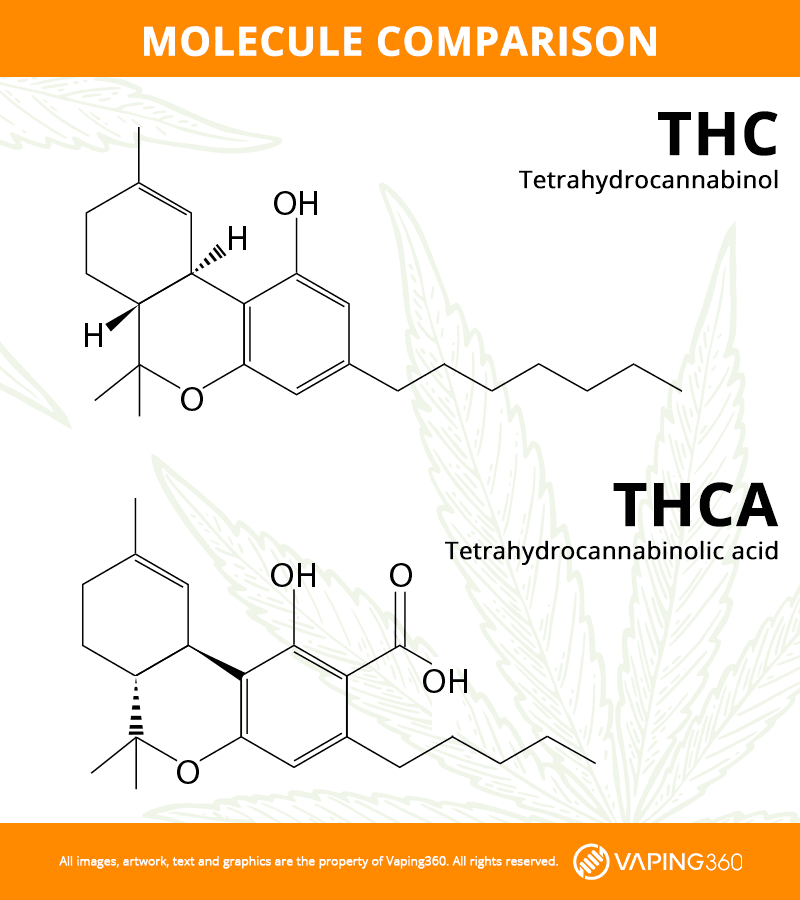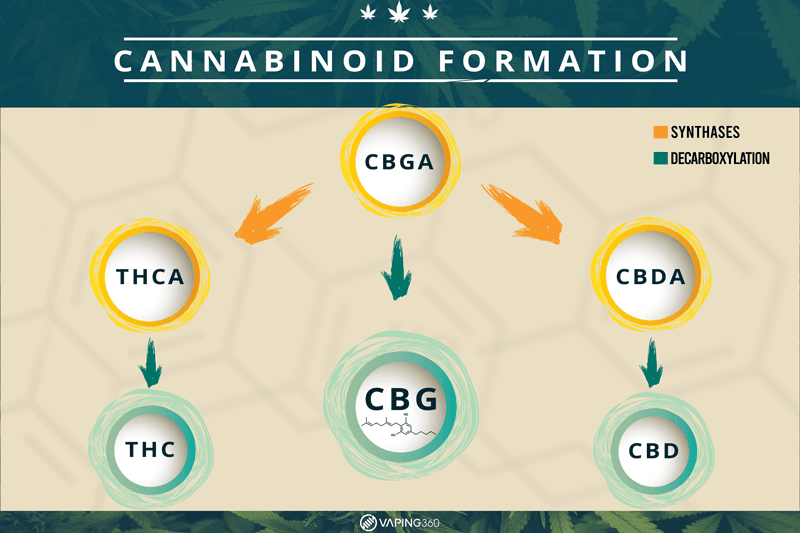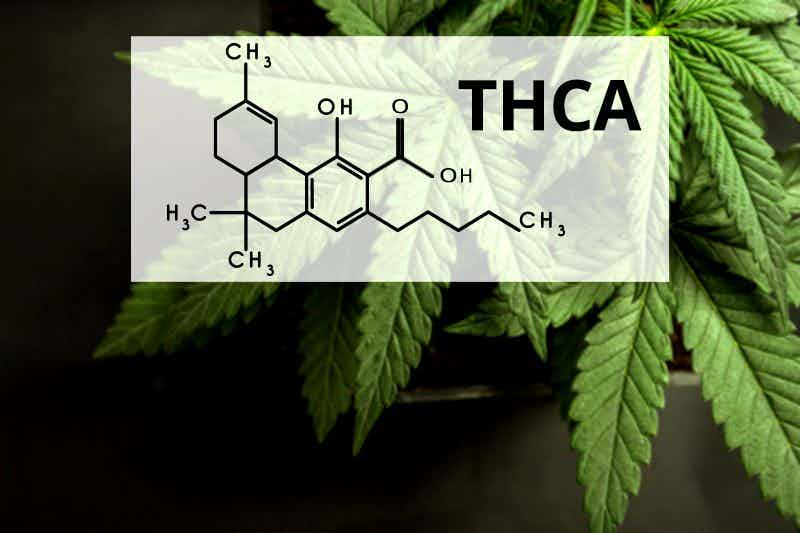THCA, or tetrahydrocannabinolic acid, is a cannabinoid that has gained a lot of traction lately as it has shown a lot of promise as a treatment for a wide variety of conditions. And while it is closely related to THC, its properties are vastly different.
There is a limited amount of research on THCA so far, but here’s a rundown of what we know about this interesting cannabinoid.
What is THCA?

Let’s start with the basic science. THCA is a precursor of the most famous cannabinoid out there, THC. It is produced by CBGA (cannabigerolic acid) during the lifetime of the plant, by an enzyme called THCA-synthase. In fact, THCA is one of the three major cannabinoids produced by CBGA, with the other two being CBDA and CBG. In turn, THCA is converted into THC through a process called decarboxylation.
The mechanism is simple. During the lifetime of the plant, heat, and oxygen will gradually remove carboxyl groups from THCA, slowly transforming it into THC. However, the amounts of THC that are already formed on the plant when it is harvested are very low. In order to transform the vast majority of THCA to THC, the plant needs to be fully decarboxylated. This happens through the application of heat: lighting up a joint, using a weed vaporizer, heating it in the oven, or activating it inside the lab.
An interesting thing that comes out of this relationship between THCA and THC is the way that maximum THC is calculated. THCA contains an extra carboxyl group, thus making it heavier than THC. In order to calculate total THC, this needs to be factored in. So, instead of just adding THCA and THC content, the proper way to do it is:
Total THC = [(%THCA) x 0.877] + (%THC)
So let's say, for example, that the analysis of a strain shows that it contains 12% THCA and 2% THC before decarboxylation. In this case, following the formula above would give us:
Total THC = (12 x 0.877) + 2 = 12.5%

Potential benefits of THCA
It is important to remember that THCA has only had a limited amount of research so far. Most of its benefits are not conclusive, but it has shown a lot of promise in the following areas:
THCA exhibits similar anti-inflammatory properties to other cannabinoids according to a 2011 study. Further anti-inflammatory properties were observed in a 2017 study, where the authors proposed the use of THCA instead of CBD in the treatment of irritable bowel syndrome (IBS).
A 2017 study found that THCA exhibits potential in seizure prevention. Researchers also found that THCA is more potent than THC in the treatment of nausea and vomiting, according to a 2013 study.
A 2012 study as well as a 2017 study found that THCA exhibits neuroprotective properties that can be useful in treating Parkinson’s, Huntington’s, and other neurodegenerative diseases. Finally, a recent (January 2020) study found that THCA “reduces adiposity and prevents metabolic disease cause by diet induced obesity”.
Will THCA get you high?
THCA side effects
There haven’t been any notable side effects observed with the consumption of THCA. It is hypothesized that some THCA may turn into THC in the digestive track and cause psychotropic effects. But even if that’s the case, the amount of THC produced and its effect will probably be negligible.
As always, it is advisable to consult with your physician before adding THCA to your regime, especially if you are on prescribed medication.
Will THCA show up in a drug test?
Where can THCA be found?
THCA stands in a gray area when it comes to legality. It is not listed as a controlled substance under federal law, but being that it is a precursor of THC, it can be considered as an analog. And let’s not forget that the cannabis plant contains mostly THCA and not THC.
In places where THC is legal, there is a growing market of products formulated with 99% pure THCA extract known as diamonds. This is commonly referred to as "diamond sauce," "terp sauce," or just straight-up "sauce." It can be dabbed or vaporized in a variety of ways.
Regardless, THCA can be found in freshly harvested cannabis. In order to avoid decarboxylation, the plant needs to be consumed raw, as the application of heat will inevitably turn part of THCA into THC. Due to that, there is a rising trend of using raw cannabis leaves to make smoothies and juices, or even adding them into salads. If consuming cannabis raw doesn’t sound like your thing, a quick Google search will point you toward a selection of raw cannabis tinctures or products like transdermal patches. Also, note that some full-spectrum CBD products may contain THCA, but most of the time, it is only found in trace amounts.

Spyros Papamichail
Vaping for: 9 years
Favorite products:
Favorite flavors: Sweet tobaccos, fruits
Expertise in: Nicotine, beginner devices, advanced devices
Spyros Papamichail
Having quit smoking using vapes in 2016, I quickly developed somewhat of an obsession with all things vaping. I managed to turn my hobby into a full-time job, and I now work as the content manager here at Vaping360. In my free time you'll find me gaming on my PS5 or playing fetch with my dog, Buffy.


